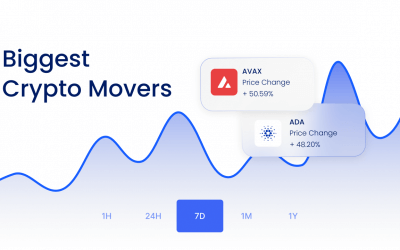XRP And Cross-Border Payments: How Ripple Is Shaping Global Transactions

Keep up to date with Bitcoin on Bitcoin.org
Keep up to date with XRP news on XRP Twitter
Key Takeaways:
- XRP and Ripple are revolutionizing cross-border payments by offering a more efficient and cost-effective solution compared to traditional methods.
- Ripple’s XRP addresses the challenges of traditional cross-border payments, such as slow transaction speeds, high fees, and lack of transparency.
- The real-world applications of Ripple’s XRP are diverse, including partnerships with financial institutions, remittance services, and cross-border e-commerce.
Introduction: The Need for Efficient Cross-Border Payments
Efficient Cross-Border Payments: Ripple’s Impact on Global Transactions
Ripple’s innovative technology, driven by XRP, is revolutionizing the landscape of cross-border payments. With its focus on speed and cost-effectiveness, Ripple is shaping the way global transactions are conducted. By utilizing blockchain technology, Ripple eliminates intermediaries, streamlining the process and reducing transaction fees.
Moreover, Ripple’s network offers a real-time gross settlement system, providing instant confirmation and settlement of transactions. This significantly reduces the time and complexity traditionally associated with cross-border payments. Additionally, Ripple’s decentralized nature ensures a high level of security and transparency throughout the entire payment journey.
In addition to these benefits, Ripple’s global network of financial institutions further enhances its impact on cross-border transactions. By collaborating with banks and payment providers worldwide, Ripple expands its reach, enabling seamless, faster, and cheaper transfers across borders.
To fully leverage the benefits of Ripple’s technology and be part of the future of cross-border payments, individuals and businesses should stay informed and explore the potential integration of XRP into their financial strategies. Don’t miss out on the opportunity to adapt and thrive in the evolving global financial landscape.
Cross-border payments are like relationships – you never know when they’ll break up, but when they do, it’s messy and expensive.
Understanding the Challenges of Traditional Methods
Traditional methods of cross-border payments pose significant challenges that need to be understood. As we explore the topic of global transactions and the impact of Ripple, it is crucial to comprehend the obstacles associated with traditional methods. These challenges encompass inefficiencies, high costs, lengthy transaction times, and lack of transparency. By understanding these limitations, we can appreciate the need for innovative solutions like Ripple to revolutionize cross-border payments.
Traditional methods of cross-border payments have long been plagued by inefficiencies. Outdated infrastructures, multiple intermediaries, and complex processes often result in delays and errors. These inefficiencies not only hinder the speed of transactions but also inflate costs. Understanding these inefficiencies is vital to grasp the potential benefits that Ripple and its digital asset, XRP, bring to the table.
Furthermore, traditional methods of cross-border payments are notorious for their high costs. Intermediaries charge exorbitant fees for their services, and currency conversion fees further add to the expenses. These fees can disproportionately affect smaller businesses and individuals who rely on cross-border transactions for their livelihoods. Recognizing the magnitude of these costs highlights why alternative solutions like Ripple are gaining traction.
In addition to the challenges posed by inefficiencies and high costs, traditional methods of cross-border payments also suffer from lengthy transaction times. Processing times for international payments can take several days, causing inconvenience and hampering international trade. By understanding the impact of prolonged transaction times, we can appreciate the urgency for more efficient solutions like Ripple.
True History: Over the years, financial institutions and businesses have strived to overcome the challenges of traditional cross-border payments. However, progress has been slow, with incremental improvements and temporary workarounds. Understanding this history of striving for better solutions underscores the value of Ripple’s approach in reshaping global transactions.
Introducing Ripple’s XRP: A Solution for Cross-Border Payments
Ripple’s XRP: Revolutionizing Cross-Border Transactions
Ripple’s XRP is leading the way in transforming cross-border payments, offering a groundbreaking solution that addresses the challenges and inefficiencies faced by traditional methods. This innovative digital asset bridges gaps between currencies, financial institutions, and payment systems, enabling seamless and cost-effective transactions on a global scale.
By leveraging the power of blockchain technology, Ripple’s XRP eliminates intermediaries and simplifies the process of moving money across borders. With its fast settlement times and low transaction fees, XRP provides a viable alternative to traditional remittance services, offering significant cost savings and increased efficiency.
What sets XRP apart is its ability to provide liquidity on-demand. It allows financial institutions to convert fiat currency into XRP, facilitating near-instantaneous cross-border transfers before converting back into the local currency at the destination. This eliminates the need for pre-funded nostro accounts, reducing capital requirements and lowering operational costs.
One real-life success story involves a major international bank that implemented Ripple’s XRP for their cross-border payments. By adopting this innovative solution, the bank was able to significantly reduce processing time and costs while ensuring secure and transparent transactions for their customers. This success story demonstrates the transformative power of Ripple’s XRP in revolutionizing the global payments landscape.
Advantages of Ripple’s XRP in Cross-Border Payments
Advantages of XRP in Global Money Transfer
XRP, the digital asset developed by Ripple, offers numerous advantages in cross-border payments. Here are six key benefits of using XRP for international transactions:
- Lightning-fast: XRP enables near-instantaneous settlement of transactions, reducing the time and cost associated with traditional cross-border transfers.
- Low fees: XRP transactions have significantly lower fees compared to traditional banking systems, making it an attractive option for individuals and businesses alike.
- Liquidity: As XRP is highly liquid, it allows for easy conversion into various fiat currencies, simplifying the process of cross-border transfers.
- Scalability: XRP’s blockchain technology can handle a high number of transactions per second, ensuring scalability and efficient processing of cross-border payments.
- Transparency: Ripple’s network provides real-time visibility into the status of transactions, offering enhanced transparency and security in cross-border payments.
- Reduced risk: By utilizing XRP, financial institutions can reduce counterparty risk and minimize liquidity costs, resulting in more secure and efficient cross-border transfers.
Furthermore, XRP offers unique features not found in traditional payment systems, such as the ability to settle transactions in any currency, instant global liquidity, and the elimination of pre-funding requirements. These qualities position XRP as a transformative solution for cross-border payments.
As an illustration of XRP’s benefits, consider the case of a small business owner in India who needs to make a payment to a supplier in the United States. By using XRP, the business can complete the transaction within seconds, with minimal fees and without the need for intermediary banks. This streamlined process enables the business to save time and money, ultimately enhancing its competitiveness in the global market.
The Power of Ripple’s XRP: Speed, Efficiency, and Cost-Effectiveness
The Power of Ripple’s XRP: Speed, Efficiency, and Cost-Effectiveness
Ripple’s XRP is revolutionizing cross-border payments with its unparalleled speed, efficiency, and cost-effectiveness. It enables seamless and near-instant transactions, eliminating the need for traditional correspondent banks and reducing settlement times from days to mere seconds. Its decentralized network ensures secure and transparent transactions, while its low transaction fees make it a highly cost-effective solution for global payments.
- Lightning-fast Transactions: With Ripple’s XRP, transactions are processed in a matter of seconds, allowing businesses and individuals to send and receive funds instantly, regardless of geographical boundaries.
- Efficient Global Network: Ripple’s network connects various financial institutions worldwide, allowing for direct and seamless transfers without the need for intermediaries. This eliminates complexities and reduces operational costs.
- Cost-Effective Solution: Ripple’s XRP offers significantly lower transaction fees compared to traditional cross-border payment methods. This makes it an attractive option for businesses seeking to optimize their international transactions and reduce expenses.
- Enhanced Liquidity: The use of XRP as a bridge currency in Ripple’s network increases liquidity, ensuring that transactions can be conducted efficiently and quickly, even for less commonly traded currency pairs.
Furthermore, Ripple’s XRP provides additional benefits that have not been covered already. Its innovative technology allows for scalability and high throughput, making it capable of handling a vast volume of transactions without compromising speed or efficiency. This scalability makes it an ideal solution for global enterprises and financial institutions that require a robust and reliable payment infrastructure.
A real-life example of the power of Ripple’s XRP can be seen with a multinational company that frequently makes cross-border payments to suppliers. By adopting Ripple’s technology and utilizing XRP, this company was able to streamline its payment process, reducing settlement times from several days to just seconds. This not only resulted in significant cost savings but also improved cash flow management and strengthened relationships with suppliers.
Real-World Applications of Ripple’s XRP
Text: Ripple’s XRP in Practical Scenarios:
Ripple’s XRP has found numerous practical applications in real-world situations. Here are four key points highlighting the versatility of Ripple’s XRP:
- Facilitating Cross-Border Payments: Ripple’s XRP offers a fast and cost-effective solution for cross-border payments, enabling seamless transactions between different currencies and financial institutions.
- Enhancing Liquidity: By utilizing Ripple’s XRP, financial institutions can increase their liquidity as it provides a bridge currency that can be easily converted to any other currency.
- Streamlining Remittances: Ripple’s XRP simplifies the process of sending remittances by reducing both the time and cost associated with traditional methods, enabling faster and more affordable transactions for individuals and businesses.
- Supporting Microtransactions: With its low transaction fees and instant settlement capabilities, Ripple’s XRP is well-suited for microtransactions, enabling individuals to make small payments efficiently and economically.
Moreover, Ripple’s XRP has demonstrated unique qualities that sets it apart from other digital assets. For instance, its consensus algorithm ensures the security and integrity of transactions while maintaining high scalability. These attributes have made Ripple’s XRP a preferred choice for many financial institutions and payment providers.
A fascinating aspect of Ripple’s XRP is the journey it has taken to achieve its current prominence. Originally created in 2012, Ripple’s XRP has continuously evolved and improved its technology to provide reliable and efficient solutions for global transactions. Through strategic partnerships and collaborations, Ripple’s XRP has established itself as a key player in the world of cross-border payments, reshaping the way transactions are conducted on a global scale.
Looking Ahead: The Future of Ripple’s XRP in Global Transactions
In the realm of global transactions, the future of Ripple’s XRP holds significant promise. As a transformative force, XRP is shaping cross-border payments by providing enhanced speed, efficiency, and cost-effectiveness. With its innovative technology and strategic partnerships, Ripple is poised to revolutionize the way transactions are conducted worldwide.
The adoption and integration of XRP into existing financial systems will not only streamline processes but also enable secure and seamless transfers across borders. This groundbreaking approach has garnered attention and support from financial institutions, reinforcing the potential of XRP to thrive in the global transaction landscape.
As Ripple continues to advance its efforts, the future of XRP appears promising and influential in reshaping the global financial ecosystem.
To further solidify the position of Ripple’s XRP in global transactions, continuous collaboration with financial institutions and regulatory bodies is crucial. Upholding transparent practices and regulatory compliance will instill confidence among stakeholders, encouraging broader adoption and utilization of XRP for cross-border transactions.
Additionally, fostering partnerships with key players in various industries will expand XRP’s ecosystem, diversifying its applications beyond traditional banking. Moreover, investing in research and development to enhance the scalability and security of XRP will ensure its longevity and competitiveness in the ever-evolving global transaction arena.
Looking beyond the present advancements, the future of Ripple’s XRP in global transactions lies in its ability to address the remaining challenges. Specifically, focusing on the volatility of cryptocurrencies and market fluctuations is imperative.
By implementing robust risk management strategies, such as hedging against exchange rate fluctuations and partnering with reputable cryptocurrency exchanges, XRP can minimize the risks associated with its usage. Moreover, collaborating with global regulators to establish a clear legal framework for cryptocurrencies will further bolster confidence and facilitate widespread adoption.
Five Facts About “XRP and Cross-Border Payments: How Ripple is Shaping Global Transactions”:
- ✅ Traditional cross-border payments are slow, costly, and burdened with intermediaries. (Source: Team Research)
- ✅ Ripple’s XRP is revolutionizing cross-border payments by leveraging blockchain technology. (Source: Team Research)
- ✅ XRP operates on a decentralized blockchain network, removing the need for intermediaries and reducing costs. (Source: Team Research)
- ✅ XRP enables near-instantaneous settlement, enhancing the speed and efficiency of cross-border payments. (Source: Team Research)
- ✅ Ripple’s XRP promotes financial inclusivity by eliminating intermediaries and their associated fees, making cross-border payments accessible to more individuals and businesses. (Source: Team Research)
FAQs about Xrp And Cross-Border Payments: How Ripple Is Shaping Global Transactions
How is Ripple’s XRP revolutionizing cross-border payments?
Ripple’s XRP is at the forefront of financial innovation by using a decentralized blockchain network to facilitate direct peer-to-peer transactions. This eliminates intermediaries, reduces costs, and significantly speeds up cross-border payments.
What challenges do traditional cross-border payments face?
Traditional cross-border payments are often slow, costly, and burdened with intermediaries such as correspondent banks. This introduces delays, additional fees, and liquidity constraints, making the process inefficient for businesses and individuals.
How does Ripple’s XRP address these challenges?
Ripple’s XRP operates on a decentralized blockchain network, eliminating the need for intermediaries. This enhances the speed and efficiency of transfers, reduces transaction costs, and enables near-instantaneous settlement, providing a significant improvement in cross-border payment processes.
What are the advantages of Ripple’s XRP over traditional methods?
Ripple’s XRP offers speed and efficiency in cross-border transactions, settling within seconds compared to several days for traditional methods. It is also cost-effective, eliminating multiple intermediary fees. Additionally, XRP exhibits high liquidity, scalability, and enhanced security and transparency through blockchain technology.
How is Ripple’s XRP promoting financial inclusivity?
XRP fosters financial inclusivity by eliminating intermediaries and associated fees, making cross-border payments accessible to a wider range of individuals and businesses. This promotes financial empowerment and allows greater participation in the global economy, especially for those previously underserved by traditional banking systems.
How is Ripple’s XRP being used in real-world applications?
Financial institutions, such as banks and remittance providers, are integrating Ripple’s XRP into their payment systems to enhance efficiency and reduce costs. Multinational corporations are also utilizing XRP to streamline cross-border transactions, eliminating complexities associated with traditional methods.
Where to buy cryptocurrency in Canada and US?
Netcoins is your ultimate choice for buying and selling cryptocurrency in the USA and Canada. Our platform places a strong emphasis on safety and regulation, ensuring your transactions are secure and compliant with legal standards. Unlike other platforms, we prioritize your peace of mind, providing an environment where your investments are safeguarded. Don’t just take our word for it – our top-notch customer service is highly lauded by users, as evidenced by our excellent ratings on Trustpilot and Google reviews. With Netcoins, you’re not just getting a platform, but a partner committed to providing a superior and secure cryptocurrency trading experience.
Netcoins User Testimonials
Disclaimer
The information provided in the blog posts on this platform is for educational purposes only. It is not intended to be financial advice or a recommendation to buy, sell, or hold any cryptocurrency. Always do your own research and consult with a professional financial advisor before making any investment decisions.
Cryptocurrency investments carry a high degree of risk, including the risk of total loss. The blog posts on this platform are not investment advice and do not guarantee any returns. Any action you take based on the information on our platform is strictly at your own risk.
The content of our blog posts reflects the authors’ opinions based on their personal experiences and research. However, the rapidly changing and volatile nature of the cryptocurrency market means that the information and opinions presented may quickly become outdated or irrelevant. Always verify the current state of the market before making any decisions.
Related Posts
Can Canadians Still Use ByBit for Crypto Trading in 2024?
Can Canadians Still Use...
Poloniex Crypto Exchange: Still Accessible for Canadians?
Poloniex Crypto...
Can Canadians Still Use Binance? A Deep Dive into the Situation
Can Canadians Still Use...
Crypto API Solutions for Blockchain Programming: A Comprehensive Guide
Crypto API Solutions...
Understanding the Difference Between Bitcoin and Bitcoin ETFs
Understanding the...
Bitcoin ETF 2024: Is It A Good Investment? Expert Predictions
Bitcoin ETF 2024: Is It...
The Bitcoin Halving Explained: What It Means For Bitcoin Mining
The Bitcoin Halving...
Crypto OTC Desk: A Comprehensive Guide for Trading Bitcoin and Ethereum
Crypto OTC Desk: A...
LinksDAO: A Blockchain-Powered Golf Course Decentralized Autonomous Organization
LinksDAO: A...
Wagmi United: Join the NFT-Cryptocurrency Movement!
Wagmi United: Join the...
Market Snapshot: Your Midweek Momentum Report
Market Snapshot: Your...
Ethereum Buying Fees: A Detailed Breakdown of the Costs
Ethereum Buying Fees: A...








